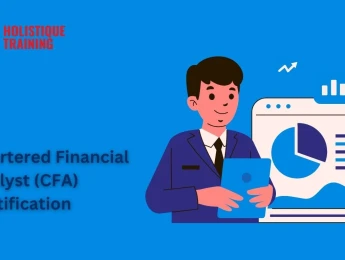Controlling your financial processes and tools is one of the most effective and efficient ways to manage your business performance, decisions and changes. Ultimately, the applied management of your financial processes is the main thing that will determine your abilities and options as a company going forward. Poor management and organisation mean the possibility of a lack of financial choices or the ability to recover from financial loss later.
Once the most appropriate and effective financial management methods have been determined, it’s essential to map these out, store them securely and communicate them effectively to maintain clear procedures across departments.
Accounting policies and procedures relate to all business areas, including Payroll, HR processes, cost capitalisation, purchasing, sales, inventory, and asset management. Ensuring these are communicated across the business and utilised correctly helps business managers understand the company's limitations and make good financial decisions.
Your company policies and procedures also help you identify risks, create contingency plans, and effectively delegate tasks and projects, which can increase profits and protect the company financially.
Upon completion of this course, participants will be able to:
- Create fool-proof policies and processes to protect against financial risk.
- Understand the implications of having out-of-date procedures.
- Effectively communicate changes in policies to the wider company.
- Utilise your policies when evidencing the reasons for financial change.
- Use policies to determine payroll and HR processes to maintain fairness across the company.
- Develop future projects and workforce planning around your financial procedures.
- Use policies to streamline processes and make the operation more productive.
- Identify business risks and create mitigation and recovery processes.
- Use policies as a reference when predicting future change.
This course is designed for anyone responsible for writing, communicating, or maintaining financial processes for wider business benefit. It would be most beneficial for:
- Business Owners
- Process Writers
- HR Professionals
- Finance Officers
- Payroll Professionals
- Operations Managers
- Communication Associates
- Project Managers
- Risk Assessors
- Change Managers
- Directors
This course uses various adult learning methods to aid full understanding and comprehension. Participants will be provided with real-world examples to understand the requirements of an effective financial policy. They will discover the reasons for the policy and its secure record keeping and updating.
Group exercises will open up discussions about how financial policies could help organisations manage risks. A group activity will help participants brainstorm the content of potential financial policies. Finally, role-playing exercises will ask participants to communicate changes in financial policies to employees and stakeholders and sell the procedure's benefits to the wider company.
Day 5 of each course is reserved for a Q&A session, which may occur off-site. For 10-day courses, this also applies to day 10
Section 1: Your Department Build
- Developing your bespoke accounting material.
- Authorities, duties, and accounting personnel.
- Your workforce and budget.
- Creating a relevant accounting manual.
- Department development with finance in mind.
- Accessing appropriate data.
- HR and software development for accuracy in payroll, purchasing, accounts payable, and procurement.
Section 2: Commonly Used Accounting Concepts & Their Application
- Understanding your current accounting presumptions.
- Accounting, accrual, and Cash Basis.
- Your future forecasting assumptions.
- Your reliability and forecasting framework review.
- Access to funding, resources, revenue, and expenses.
Section 3: Accounting Procedure Roll-out
- Charting your accounts.
- Accounting structure.
- Considering exchange rates and variations.
- Accounts and expenses and allocating cost centre codes.
- Prepaid and accrual concepts and their implications.
Section 4: Cost Capitalisation & Fixed Assets
- The reporting and treatment of fixed assets.
- Fixed asset devaluation.
- The disposal and reporting of fixed assets.
Section 5: Policies in Accounts Payable
- Confirming purchasing and procurement processes.
- Invoicing, sales, and inventory management.
- Record-keeping and payables due.
- Payment processing, applications, and software options.
Section 6: Inventory Processing & Accounts Receivable
- Registration of your production costs.
- Transferring materials between departments.
- Protecting your assets.
- Issuing goods and services within a positive financial structure.
- Accounts receivable policies and approval.
- Gaining stakeholder buy-in.
- Bank and client guarantees and agreements.
- Invoices, collections, and receipts.
Section 7: Outside-the-Box Accounting Procedures
- Debit and credit note policies and guidance.
- Payroll recording and measurements.
- Budgeting against prior financial statements.
- Issuing changes and effective communication.
- Financial analysis and change management.
Upon successful completion of this training course, delegates will be awarded a Holistique Training Certificate of Completion. For those who attend and complete the online training course, a Holistique Training e-Certificate will be provided.
Holistique Training Certificates are accredited by the British Assessment Council (BAC) and The CPD Certification Service (CPD), and are certified under ISO 9001, ISO 21001, and ISO 29993 standards.
CPD credits for this course are granted by our Certificates and will be reflected on the Holistique Training Certificate of Completion. In accordance with the standards of The CPD Certification Service, one CPD credit is awarded per hour of course attendance. A maximum of 50 CPD credits can be claimed for any single course we currently offer.
- Course Code PF1-118
- Course Format Classroom, Online,
- Duration 5 days














